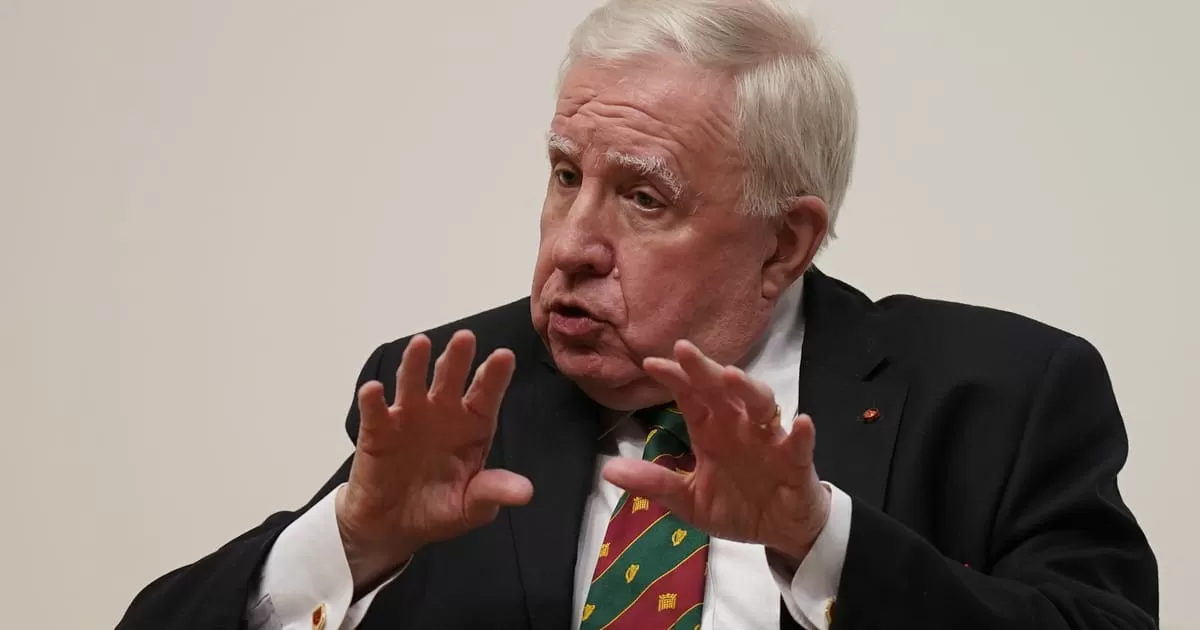Paul Murphy, a former Northern Ireland Secretary, has been appointed to lead a review on the enforcement of EU goods law in the region. This decision has caused some concern among unionists, as it may lead to changes in how goods coming from Britain are policed. However, Murphy’s involvement in the 1998 peace breakthrough gives hope that his recommendations will ultimately benefit all parties involved.
The Good Friday Agreement, signed in 1998, brought an end to decades of conflict in Northern Ireland. Paul Murphy played a crucial role in this historic peace breakthrough as the Secretary of State for Northern Ireland at the time. His experience and expertise in dealing with the complex political landscape of the region make him a highly qualified candidate to lead this review.
The review was commissioned by the UK government as part of the Brexit negotiations. With Northern Ireland being the only part of the UK to share a land border with the EU, the issue of goods and trade has been a major point of contention. The Northern Ireland Protocol, which was agreed upon as part of the Brexit deal, aims to prevent a hard border between Northern Ireland and the Republic of Ireland. However, this has resulted in checks and controls on goods entering Northern Ireland from the rest of the UK.
This has been a source of frustration for unionists, who see it as a threat to their identity and the integrity of the UK. They fear that the protocol will create a de facto border in the Irish Sea and separate Northern Ireland from the rest of the UK. The appointment of Paul Murphy, who is seen as a moderate and respected figure by both nationalists and unionists, has been met with mixed reactions from the unionist community.
However, it is important to note that Murphy’s role is not to change the protocol itself, but rather to review how it is being implemented. His recommendations will be focused on finding ways to improve the enforcement of EU goods law in Northern Ireland, while also addressing the concerns of unionists. This is a delicate balance, but one that Murphy is well-equipped to handle.
Murphy has already stated that he will be engaging with a wide range of stakeholders, including businesses, trade unions, and political parties, to gather their views and concerns. This inclusive approach is crucial in finding a solution that works for all parties involved. It is also a testament to Murphy’s commitment to finding a fair and balanced outcome.
His involvement in the 1998 peace breakthrough gives hope that he will be able to navigate this complex issue and find a way forward that promotes peace and stability in the region. His experience in dealing with sensitive political matters and his understanding of the unique dynamics of Northern Ireland make him the ideal candidate for this role.
It is understandable that unionists may have reservations about the review and its potential impact on the protocol. However, it is important to remember that the protocol was agreed upon by both the UK and the EU as a means to prevent a hard border on the island of Ireland. It is not a threat to the union, but rather a solution to a complex problem.
In fact, the protocol has already brought tangible benefits to Northern Ireland, such as continued access to the EU single market and the ability to trade freely with both the UK and the EU. It is in everyone’s interest to ensure that the protocol is implemented effectively and fairly, and this is where Murphy’s review will play a crucial role.
In conclusion, Paul Murphy’s appointment to lead the review on the enforcement of EU goods law in Northern Ireland is a positive step towards finding a solution that works for all parties involved. His experience, expertise, and inclusive approach make him the ideal candidate for this role. It is time for all stakeholders to come together and work towards a mutually beneficial outcome that promotes peace, stability, and prosperity in Northern Ireland.

